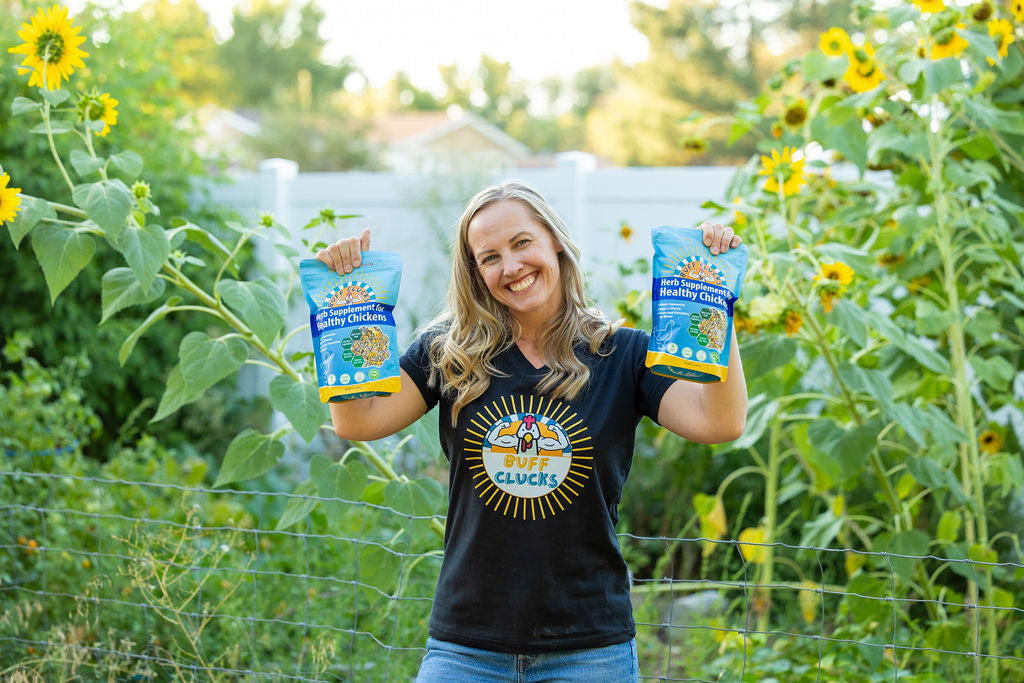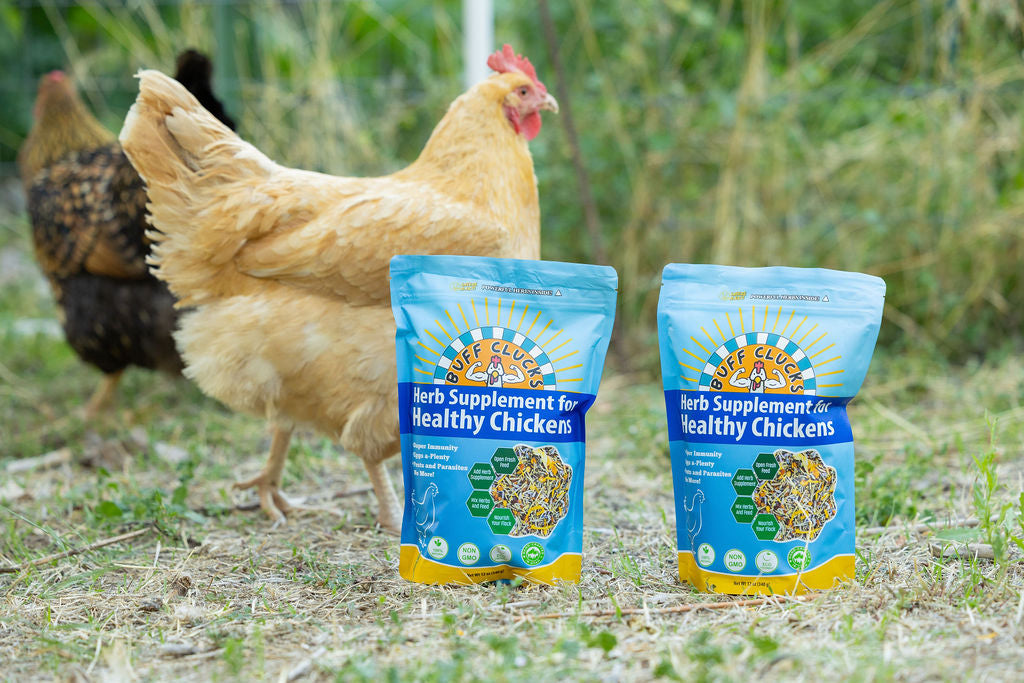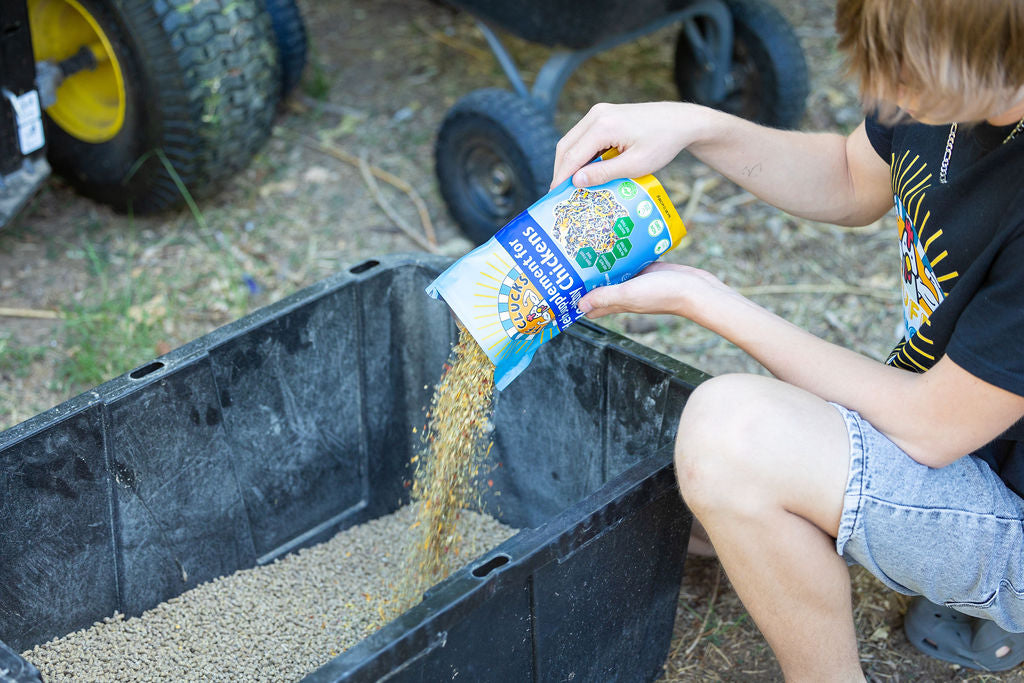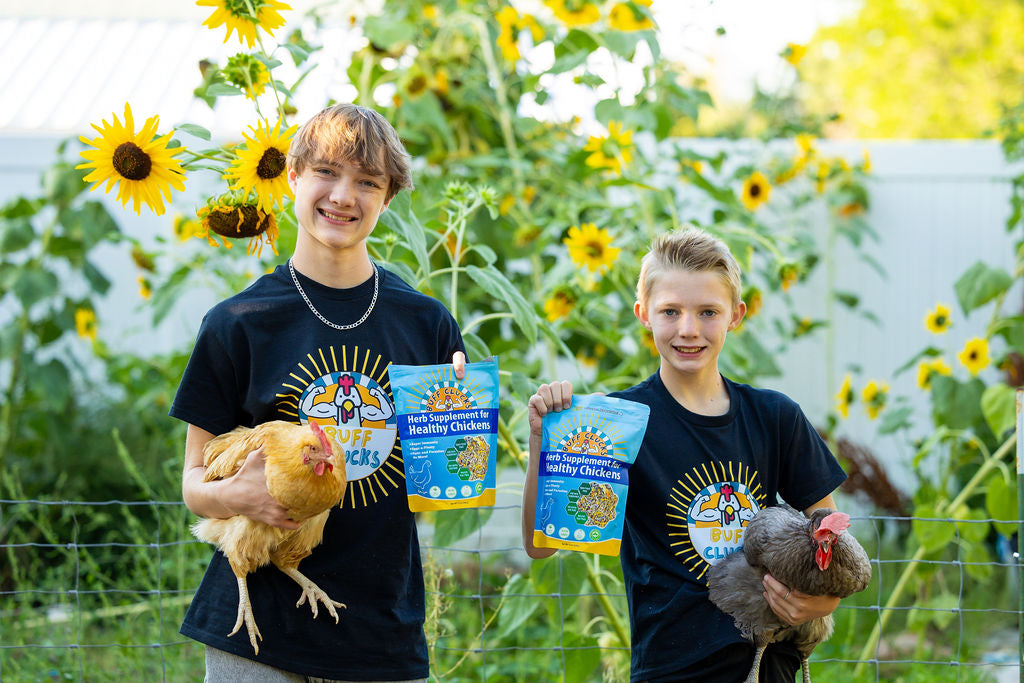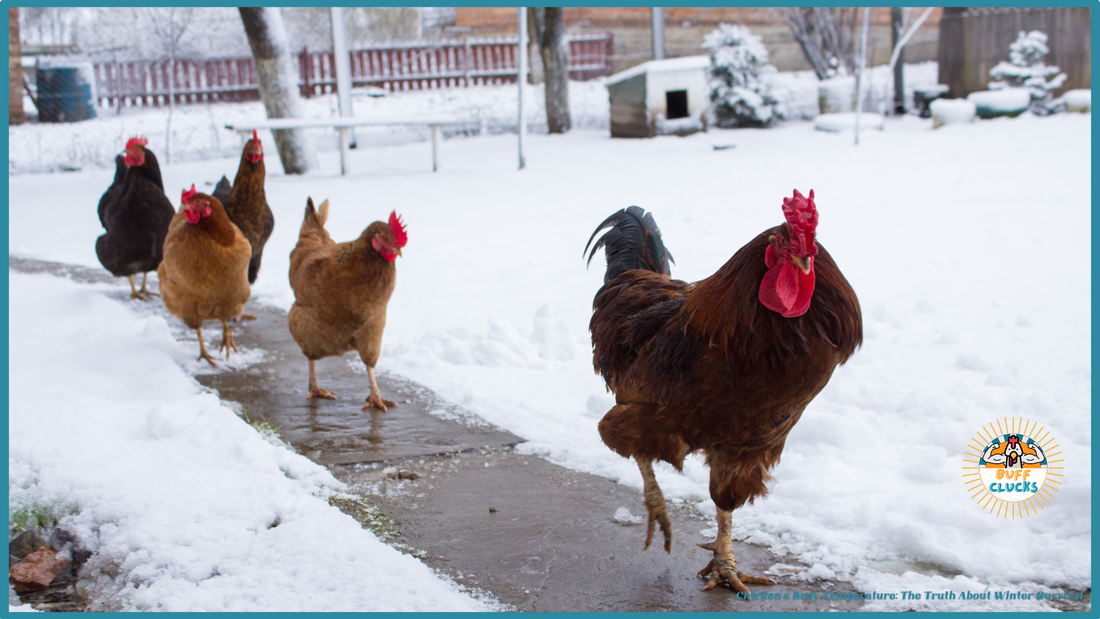
Chicken's Body Temperature: The Truth About Winter Survival
Share
Winter is coming, and while your chickens might look as fluffy as a well-shaken feather duster, you might still be wondering: Can they really handle the cold? Let’s crack open the truth about a chicken’s body temperature and how these feathery little dinosaurs survive winter-like pros.
What’s a Chicken’s Normal Body Temperature?
Chickens are naturally warm-blooded, with an average body temperature between 105-107°F (40-42°C). Yep, they run hotter than your morning coffee. This internal furnace helps them thrive even when the temperatures outside feel more fit for a polar bear than a poultry party. But, just because chickens are built for warmth doesn’t mean they’re completely immune to winter woes. Let’s look into how they keep their tail feathers toasty and what you can do to help.
How Chickens Naturally Stay Warm in Winter
Unlike humans, who need multiple layers, heated blankets, and a refusal to leave the house, chickens have built-in survival mechanisms. Here’s how they do it:
-
Feathers Are Their Personal Parkas — Chickens fluff up their feathers to trap warm air close to their bodies, creating an insulating effect.
-
Tucked Toes & Cozy Combs — Chickens often tuck their feet under their bodies and their heads into their feathers to conserve heat. However, their combs and wattles are more exposed, making them prone to frostbite.
-
Group Cuddles — Chickens aren’t just gossiping on the roost at night; they’re sharing body heat! Huddling together helps them conserve warmth when temperatures drop.
-
Internal Furnace — Their fast metabolism keeps their body temperature stable, as long as they have enough food and water to fuel it.

Signs Your Chicken Might Be Too Cold
While chickens are pretty resilient, extreme cold can be a problem. Here’s what to watch out for:
-
Pale or frostbitten combs/wattles
-
Shivering
-
Lethargy or excessive puffing up
-
Huddling excessively and avoiding movement
-
Not eating or drinking enough
Helping Your Chickens Survive & Thrive in Winter
Let’s make sure your flock stays happy, healthy, and laying those golden eggs year-round. Here’s what you can do:
1. Keep Them Well-Fed
Chickens burn extra energy in winter to stay warm. That means upping their calorie intake with high-energy feed and treats like cracked corn or black oil sunflower seeds before bedtime. This fuels their overnight heating system. Add Buff Clucks Herb Supplement for Backyard Chickens to their diet. It’s packed with natural immune-boosting herbs to keep them healthy when the cold sets in.
2. Protect Against Frostbite
Those combs and wattles are at risk in freezing temperatures, so a little extra care goes a long way. Applying petroleum jelly or an herbal balm to these vulnerable areas helps create a protective barrier against the cold, sealing in warmth and shielding them from icy winds. Think of it as a cozy winter coat for their delicate skin, just without the tiny chicken zippers. A generous dab before particularly chilly nights can help prevent frostbite from sneaking in and turning those bright red combs into frozen chicken popsicles.
Read more: How to Prevent Frostbite in Chickens
3. Provide a Draft-Free, Well-Ventilated Coop
A warm coop doesn’t mean an airtight one. Too much moisture = frostbite and respiratory issues. Aim for good airflow without direct drafts hitting your chickens at night. Insulate the coop with straw or wood shavings, but skip the heat lamps, those are fire hazards and can make chickens less adaptable to the cold.

Here’s a coop care tip: Sprinkle Buff Clucks CoopShield (Diatomaceous Earth & Herbs for Chickens) in your coop bedding. It helps absorb moisture and keeps the winter bugs at bay.
4. Give Them Access to Fresh, Unfrozen Water
Dehydration in winter? You betcha. Chickens need constant access to water, but freezing temps make that tricky. Use heated water or change their water frequently to keep it from turning into an ice rink. Try Buff Clucks AquaBoost—Water Supplement for Backyard Chickens to keep hydration levels up and support their immune system during winter.
5. Let Them Be Chickens!
Just because it’s chilly outside doesn’t mean your flock should be cooped up all day. Most chickens actually enjoy pecking around in the cold, as long as they have access to dry, snow-free areas. Scratching and foraging are a big part of their natural behavior, and a little fresh air helps prevent boredom and stress.
If there’s snow on the ground, lay down some straw or boards to create paths for them to walk on. Encourage activity by scattering treats in the yard or offering a dust bath in a sheltered area. As long as they’re dry and out of the wind, your chickens will happily strut around like winter warriors!
6. Check on Them Regularly
Your chickens aren’t exactly going to send you a text saying, “Hey, we’re freezing out here!” so it’s up to you to keep an eye on them. Make it a habit to do a daily wellness check, watch for signs of cold stress, ensure their food and water supply is steady, and check their feathers and feet for any issues.
Also, don’t forget to monitor their coop conditions. If it starts smelling funky or seems too damp, adjust ventilation or bedding as needed. Keeping tabs on your flock helps ensure they stay comfortable, healthy, and ready to greet you with happy clucks every morning!

Can Chickens Handle Below-Freezing Temperatures?
Most backyard chickens can handle temperatures well below freezing if they’re properly cared for. Hardy breeds like Orpingtons, Rhode Island Reds, and Wyandottes are basically the winter warriors of the chicken world. However, if temps dip into the extreme negatives, you may need to add extra bedding, increase food rations, and keep an extra watchful eye on your flock.
Chickens are way tougher than they look, and with a little help from their favorite human (that’s you!), they’ll strut through winter like it’s no big deal. So, don’t stress too much about your chickens in the cold, just be the best chicken-tender you can be, and they’ll do the rest!






